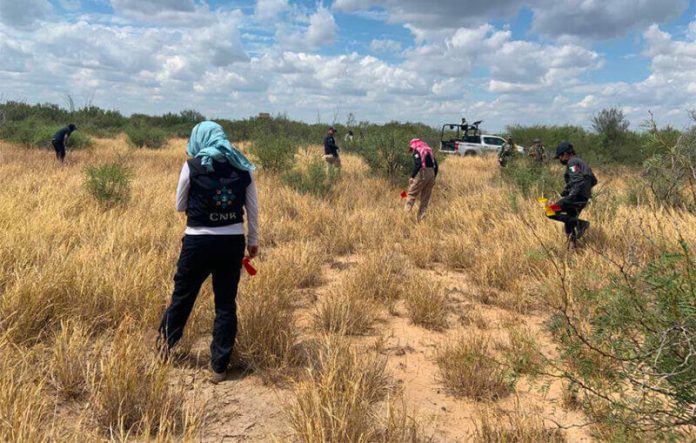A recently used extermination camp was discovered near Nuevo Laredo, Tamaulipas, a city on the United States border, said the head of the National Search Commission, Karla Quintana.
The Tamaulipas Search Commission found human remains, shovels and axes near abandoned housing off kilometer-26 of the Monterrey-Nuevo Laredo highway. Quintana has since confirmed the camp was used as a clandestine crematorium for systematic murder.
The search relates to the disappearance of at least 100 people near the state border with Nuevo León, the majority of whom are thought to be truck drivers and taxi drivers. Disappearances are often related to organized crime, and Tamaulipas is home to the violent Gulf Cartel, based in Matamoros. The criminal group has long dominated criminal activity in the state and has been undergoing an internal power struggle since 2017 to control drug and human trafficking routes.
In response to the spate of disappearances, a cross-state working group was set up to enable collaboration between the Attorney General’s Offices of Nuevo León and Tamaulipas and to bring together the National Search Commission and local search commissions in Nuevo León, Coahuila, México state, Hidalgo, San Luis Potosí and Veracruz.
The first discovery came in June when Tamaulipas authorities found voter credentials, cell phones and clothing near the highway.
Quintana said that further investigation would be necessary to identify the bodies but that it was the responsibility of state authorities. “We are going to recover these human remains in a dignified manner and with due diligence … it is the state Attorney General’s Office of Tamaulipas which is responsible for the respective identification … in forensic matters,” she said.
She added that searches would continue in the area over the next few months. Search teams are supported by the National Guard, Tamaulipas police officers, Nuevo León security forces and the army.
Fifty-seven extermination sites have been found and documented in Tamaulipas by relatives of missing people, Animal Político reported.
Fifty-three of those sites have been discovered in southwestern Tamaulipas in five municipalities: Mante, Xicoténcatl, Llera de Canales, Gómez Farías and Ocampo.
The northeast has been the region of the country where the most extermination camps have been unearthed, Quintana confirmed.
Politics is a murky business in Tamaulipas. Federal authorities accuse state Governor Francisco García Cabeza de Vaca of having ties to organized crime but have been unable to take him into custody due to his immunity from prosecution in Tamaulipas.
Over the last 15 years, more than 80,000 people have disappeared in Mexico. According to a report by the federal government in April, Tamaulipas and Nuevo León are among the five states with the highest number of disappearances reported.
With reports from Milenio and Animal Político
